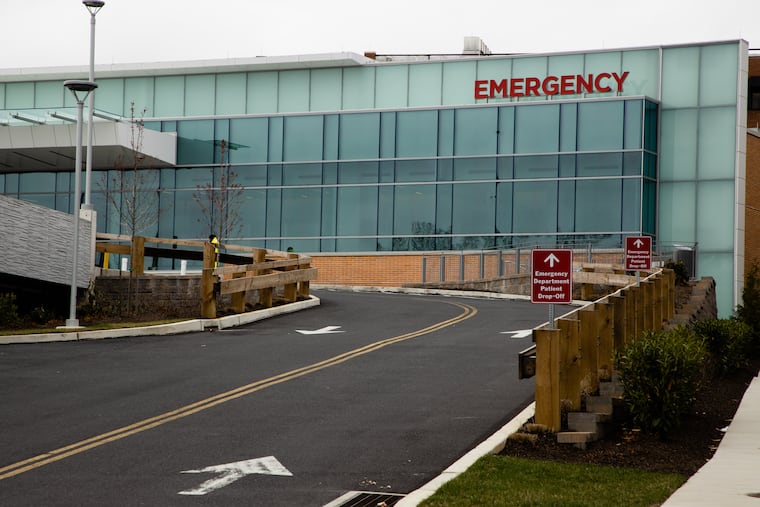A Main Line Health hospital nurse accidentally doubled a patient’s painkillers. State inspectors issued a severe warning.
Lankenau Medical Center in Wynnewood was briefly under "immediate jeopardy" from state inspectors following medication error.

A nurse at Main Line Health’s Lankenau Medical Center accidentally gave a patient a double dose of a powerful opioid painkiller, resulting in the patient overdosing and leading state inspectors to slap the hospital with its most serious safety warning, “immediate jeopardy.”
On Aug. 11 a nurse at the Wynnewood hospital gave a patient 3 mg of hydromorphone — an opioid used to treat moderate to severe pain — double the 1.5 mg prescribed, according to a state inspection report released last week. The patient was found unresponsive and had to be revived with the overdose-reversing drug naloxone. The patient then required treatment in the ICU.
Inspectors concluded that the nurse had failed to follow the hospital’s protocol for using potentially dangerous drugs and verifying medication information before administering it to patients.
» READ MORE: What do you think about our Eds and Meds content? Please share your thoughts in this brief survey.
The August incident resulted in the state placing Lankenau in “immediate jeopardy” — a serious warning that indicates a hospital has safety problems that could threaten the lives of patients. The immediate jeopardy label was removed a day later, after the hospital retrained all its nurses on medication protocol and committed to a month of quality checks, according to the report.
“Providing safe, high-quality, and equitable care to our community is our top priority. We take the situation very seriously and have implemented immediate and ongoing steps to correct any deficiencies identified by the state,” said Larry Hanover, a spokesperson for Main Line Health, in a statement.
Strict protocol for administering medication
Medication errors are common and can be deadly. Pennsylvania hospitals reported nearly 34,000 medication errors in 2022, according to the Pennsylvania Patient Safety Reporting System, which logs mistakes and incidents that hospitals are required to report. Of those, 228 were considered “serious events,” in which the medication error resulted in death or grave injury.
» READ MORE: A Philly-area woman was severely burned after a Main Line Fertility doctor mistakenly injected acid into her body
That’s why hospitals have strict protocol for use of such medications.
Like many hospitals, Lankenau uses a computerized medicine cabinet that tracks which medications are removed. If the vial contains more medication than needed, the nurse must eliminate the excess to reach the correct dosage in front of another nurse, according to the state inspection report.
Before administering any medication, Lankenau’s policy requires nurses to verify that they are removing medication for the correct patient, and confirm the medication name, dosage, strength (which may be different from dosage), and expiration date.
The state’s inspection found that the nurse had not properly documented the vials of hydromorphone that she removed, which led to the double-dose error.
Hospital staffers told state inspectors that the nurse admitted the mistake and was removed from the schedule. Hanover declined to say whether the nurse was still employed by Main Line Health.
Immediate jeopardy indicates serious safety risks
Immediate jeopardy is among the most serious warnings Pennsylvania inspectors can impose, indicating potentially life-threatening safety failures at a state-regulated medical facility.
Once flagged for immediate jeopardy, hospitals are required to immediately draft a plan to correct the problem and to prevent it from reoccurring. They risk losing their government Medicare and Medicaid funding, as well as their national accreditation, if they fail to quickly correct the problem.
Under Lankenau’s plan of correction, nurses on duty the day of the inspection were retrained on how to administer medications and policies for using opioids and other stringently regulated drugs, known as controlled substances. All others were trained before their next shift.
Lankenau also said it would conduct 30 observation audits per week for at least 30 days. Administrators said they would continue auditing nurses until they reached 100% compliance.
The hospital had met its auditing goals as of Sept. 28, according to the inspection report.